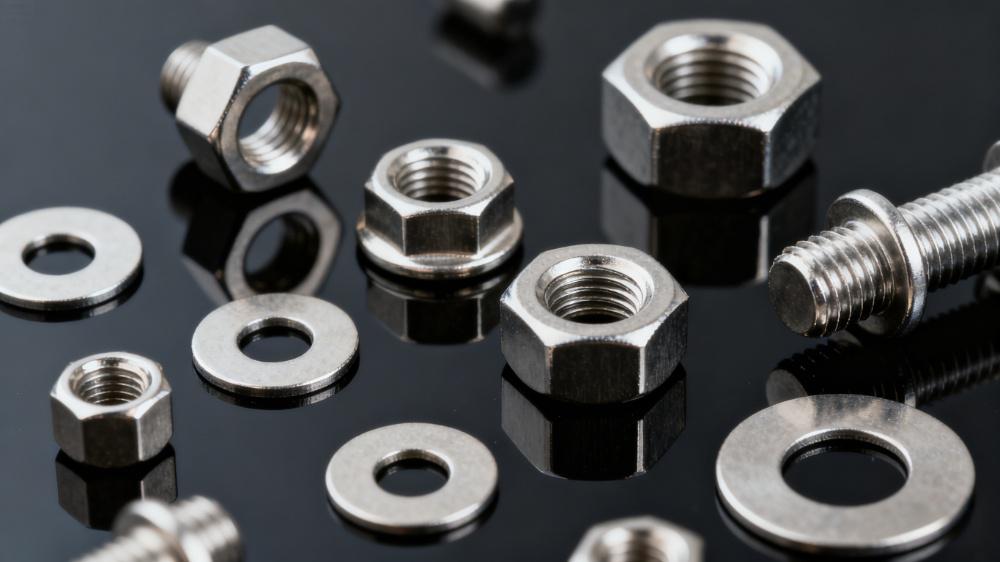Stainless steel fasteners—including stainless steel washers, stainless steel bolts, screws stainless steel, heavy hex nuts, and stainless steel hex head fasteners—play a critical role in global manufacturing, construction, energy, automotive, and maritime industries. With their corrosion-resistant performance and long service life, ss fasteners remain in high demand across international markets. However, the international trade of these products is governed by strict rules. Understanding global import and export regulations for stainless steel fasteners is essential for every fastener manufacturer, fasteners exporter, and fasteners supplier stainless steel.

1. Understanding Stainless Steel Fastener Standards
International buyers require strict compliance with mechanical, chemical, and performance standards. The market recognizes ASTM, ISO, DIN, JIS, and BS standards. These frameworks cover compositions of raw materials, dimensions of hex bolt and nut types, testing processes, and quality requirements. The U.S. Code of Federal Regulations (CFR) also plays a significant role, particularly for imports into the United States.
Manufacturers must ensure their stainless steel fastener ss grades (such as SS304, SS316, or duplex stainless fasteners) comply with the specifications, guaranteeing safety and reliability for end-use applications.
2. Import Regulations in Key Markets
United States
The United States enforces strict standards for stainless steel fasteners. Importers must follow:
- CFR Title 19 for customs procedures
- CFR Title 21 or 49 if products are used in food, pharmaceutical, or transportation sectors
- Country of origin marking requirements
- Material certification (Mill Test Certificates)
Compliance ensures smooth customs clearance and avoids legal penalties.
Europe
The European Union’s CE requirements and EN standards govern mechanical performance, corrosion resistance, and labeling. REACH regulations also apply to any chemical substances used in coatings or treatments of ss fasteners.
Sri Lanka
As a growing market, Sri Lanka imports large quantities of stainless steel nut bolt, stainless steel washers, and standard fastener assortments. Import duties, HS codes, and conformity certificates must match Sri Lanka’s Standards Institution requirements.
India – A Major Export Hub
India is home to many leading fasteners manufacturers in India, exporting to more than 100 countries worldwide. These companies supply a wide range of stainless fasteners, including:
- stainless steel hex head bolts
- heavy hex nuts
- stainless steel bolts
- precision screws stainless steel
Indian exporters must comply with domestic BIS standards (ISI marking when required) and the technical requirements of each destination country.
3. Export Documentation and Compliance
Global exporters of stainless steel fasteners must prepare detailed export documents, including:
- Commercial invoice
- Packing list
- Bill of lading
- Certificate of origin
- Material test certifications
- Compliance certificates according to CFR, ISO, or CE requirements
Failure to meet destination regulations results in delays, penalties, or shipment rejection.
4. The Importance of Corrosion Resistance and Material Traceability
Corrosion resistance is a major purchasing factor in industries such as offshore, chemical, marine, and energy sectors. Stainless steel grades must be traceable back to their raw materials. Importers worldwide demand transparency to ensure durability, performance, and safety standards are met.
5. Choosing a Reliable Supplier
Whether sourcing from a fasteners exporter, a fastener manufacturer, or a global distributor, buyers should prioritize:
- Certified stainless steel materials
- Compliance with CFR, ASTM, and international standards
- Fast delivery and global logistics support
- Proven performance in corrosive environments
- Complete product documentation
FAQs: Global Import & Export Regulations for Stainless Steel Fasteners
1. What documents are required to export stainless steel fasteners?
Exporters typically need a commercial invoice, packing list, bill of lading, certificate of origin, material test certificates, and compliance documents based on each country’s regulations.
2. Why is the Code of Federal Regulations important for exporting to the U.S.?
The U.S. CFR includes customs rules, safety standards, environmental regulations, and labeling requirements that importers must comply with. Non-compliance may result in shipment delays or penalties.
3. Which countries are major exporters of stainless steel fasteners?
India, China, Taiwan, and parts of Europe are major production hubs. India, in particular, has many leading fasteners manufacturers in India serving global markets.
4. What types of stainless steel fasteners are commonly traded internationally?
Common products include stainless steel washers, stainless steel bolts, screws stainless steel, stainless steel hex head fasteners, heavy hex nuts, and stainless steel nut bolt combinations.
5. Why is stainless steel preferred for global applications?
Because stainless steel fasteners provide excellent corrosion-resistant performance, durability, and strength—making them suitable for harsh and demanding environments.
